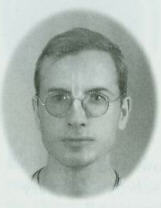
Dhruvanatha Dasa
WHILE I AND OTHER devotees were spreading Krsna consciousness in Nepal in the early 1980s, we decided that since the country was the world's last surviving Hindu kingdom, the hotel rooms in the Katmandu should have Srila Prabhupada's Bhagavad-gita As It Is, just as hotel rooms in the Christian world often have Bibles. So we phoned the most prestigious hotels near the king's palace. Six hotels agreed to take books a total of one thousand and we delivered them.
A week later we received a frantic call from a hotel manager: every book was gone. He had his suspicions, but it was too late to do anything. He told us that a delegation from Beijing had occupied every room during the last week, and only after their checking out was the loss of the books discovered.
We were elated. Not only would the hotel have to order more books, but many copies of Bhagavad-gita As It Is were now on their way to China.
The Tibet Road
Around the time the first hardback edition of Bhagavad-gita As It Is was printed in Chinese, the Chinese government was completing a road in Nepal to Tibet. We were fortunate enough to get one copy of the new book hot-off-the-press, and we decided to take the new road to the Tibetan border to distribute the book.
We didn't know quite what to expect. We arrived just before sunset. Only a small stream and a wooden bridge divided the two countries. Nothing was stopping us from leaving Nepal and walking over the bridge into Tibet. Could it be that easy?
I was elected to give it a try. Carrying Srila Prabhupada's book, I marched triumphantly onto the bridge. Halfway over I was confronted by a Chinese sentry at the other end. As I went to take another step, he aimed his rifle at me, and I believe that if I had taken another step he would have fired. I stopped abruptly. Not wanting to antagonize the soldier, I carefully balanced the book on the rail of the bridge and reluctantly retraced my steps. We then patiently waited to see what would happen.
The sentry reslung his rifle, and eventually his curiosity got the better of him. When he reached the spot where I had left the book, he looked quizzically at the cover before picking it up. He glanced our way, nodded his head in acknowledgment, and walked back to his post. The first book by Srila Prabhupada had now entered Tibet. We wondered how many times the book might change hands and how many changes of heart might occur as a result.
At the Kampuchean Border
A year later I found myself in Thailand, reunited with a dear Godbrother, Atmavidya Dasa, and a few other devotees. He had recently finished printing Srila Prabhupada's Beyond Birth and Death in Lao and Kampuchean, and we decided to try to get some copies into Kampuchea (formerly Cambodia). Again this was at a time when both countries were off limits to foreigners. Arangapatet in Thailand was the closest border with Kampuchea. But there was fighting there by rebel groups, and the border was temporarily closed. We looked for an alternate route, and two days later our luck was in. Driving down a potholed road, we were amazed to find an old road sign that read "Cambodia 3 km."
We followed the road until it petered out. A footpath through a small area of jungle beckoned us onwards. It was eerily quiet, no sounds of shells falling or gunfire.
The path forked after it came out of the jungle. A deserted muddy labyrinth of trenches and bunkers lay on either side. While we were deliberating on which way to go, we were startled by two Thai soldiers. They looked at us in disbelief.
Later we learned that they were part of the Thai border foot patrol and had spotted our vehicle. We also learned that we had been in a treacherous area of no-man's land, and had we gone any farther we would have run the risk of being blown up by land mines or shot at by snipers on the hilltops. But by Krsna's grace we had met the Thai soldiers. They agreed to take our books and pass them over to the Kampuchean border patrol on their next shift.
Dhruvanatha Dasa served for many years in Nepal, Thailand, and Malaysia. He now lives in England, where he has recently worked with the Bhaktivedanta Archives.
